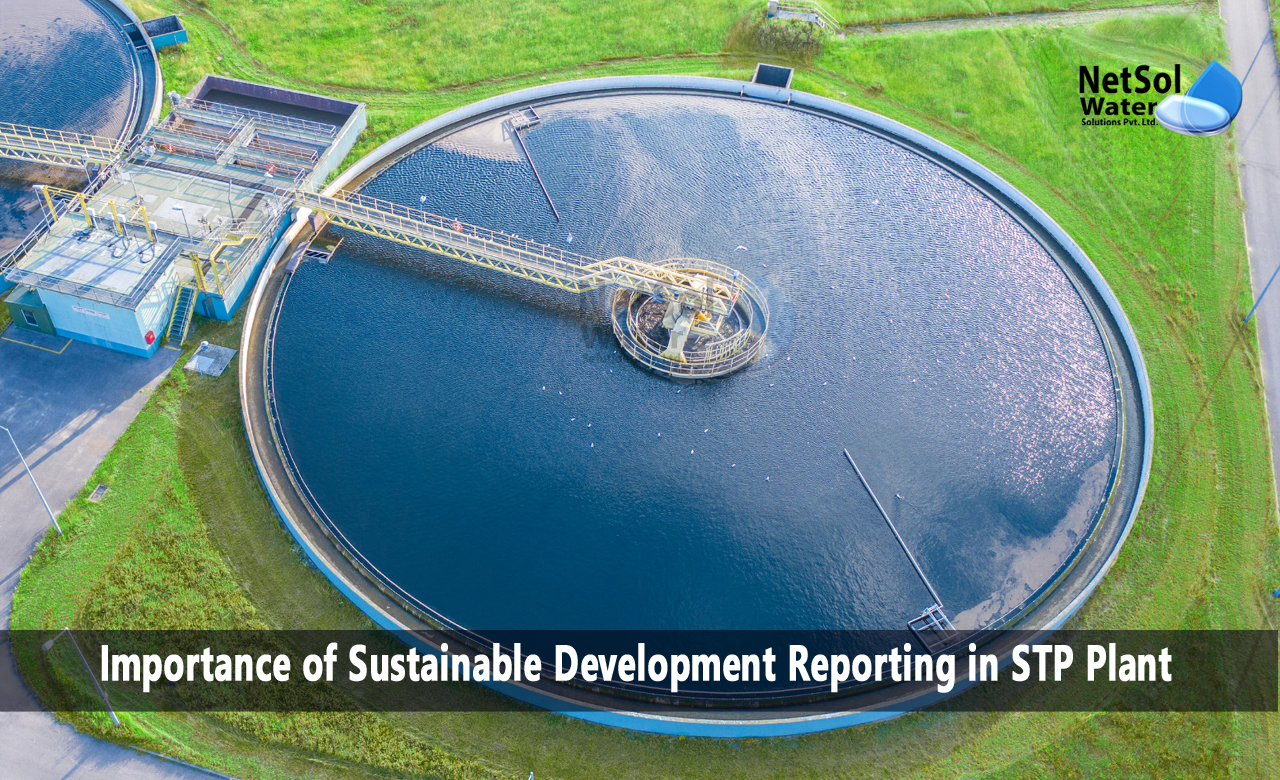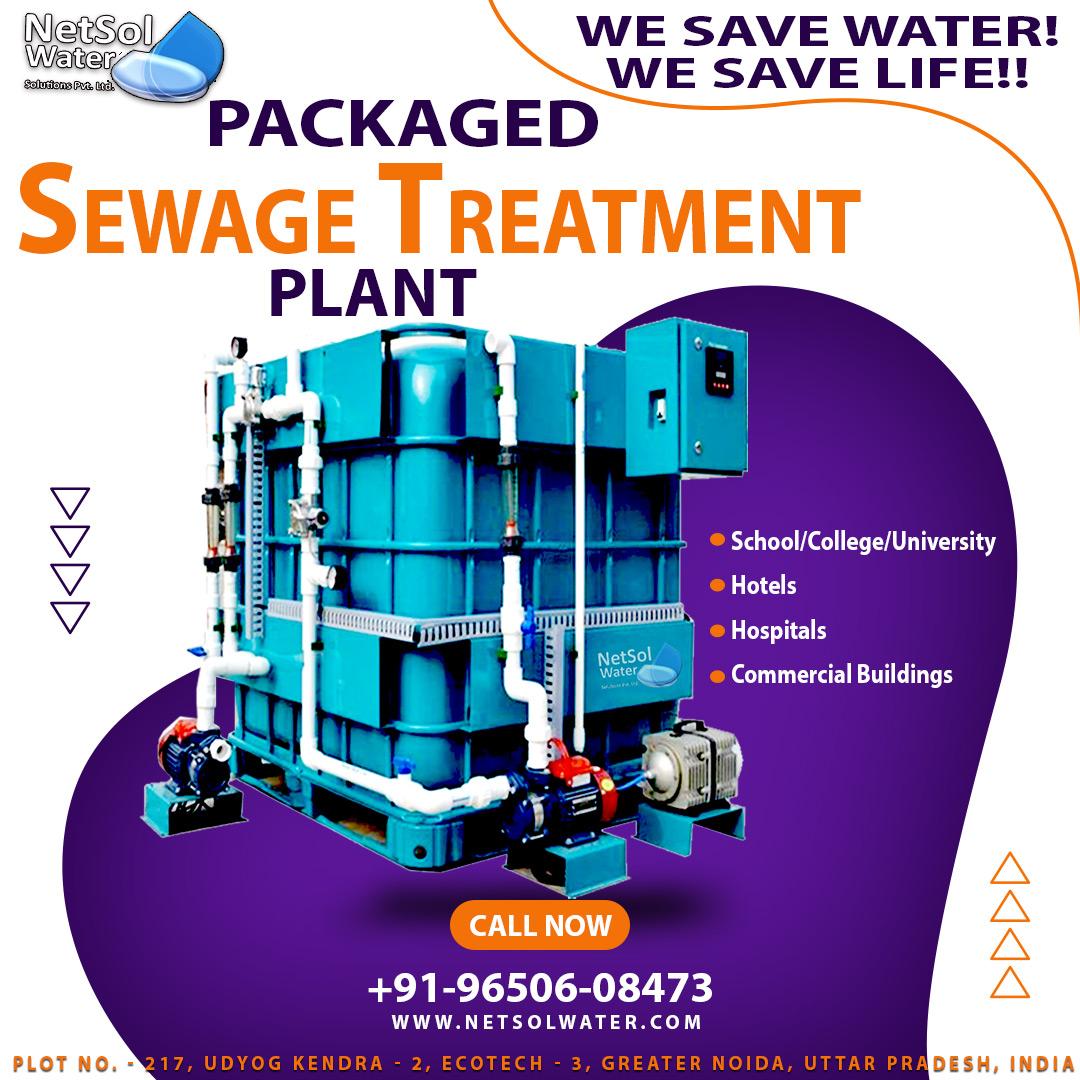What is importance of Sustainable Development Reporting in STP Plant?
In the quest for a sustainable future, the management and treatment of sewage play a crucial role. Sewage treatment plants (STPs) not only address the growing concerns of public health and sanitation but also contribute significantly to sustainable development. As environmental consciousness rises, it becomes essential to effectively communicate the environmental performance of STPs. Sustainable development reporting serves as a powerful tool in conveying the efforts and achievements of these plants in preserving our natural resources and fostering a cleaner and healthier environment.
Importance of Sewage Treatment Plants
Sewage treatment plants serve as the backbone of wastewater management systems. They play a pivotal role in treating and purifying wastewater from residential, commercial, and industrial sources. The primary objectives of STPs are to remove pollutants, prevent water contamination, and minimize the negative impact on ecosystems.
- Pollution Control: STPs employ various treatment processes to remove contaminants such as organic matter, pathogens, and nutrients from wastewater. By doing so, they prevent the pollution of water bodies, safeguarding aquatic life and supporting a healthy ecosystem.
- Resource Recovery: Modern STPs are adopting innovative technologies that allow for the recovery of valuable resources from wastewater. These include the extraction of energy in the form of biogas, production of nutrient-rich fertilizers, and the potential for water reuse. Resource recovery reduces the strain on natural resources, promotes circular economy practices, and contributes to sustainable development goals.
- Environmental Protection: By treating wastewater before it is discharged into the environment, STPs significantly reduce the risk of contamination and the spread of waterborne diseases. This protection of public health is crucial, especially in densely populated areas.
Importance of Sustainable Development Reporting
Sustainable development reporting involves the measurement, monitoring, and disclosure of environmental, social, and governance (ESG) performance. For STPs, it offers a means to communicate their contributions towards sustainable development, fostering transparency, and accountability. The following points highlight the importance of sustainable development reporting:
- Stakeholder Engagement: Sustainable development reporting allows STPs to engage with various stakeholders, including government agencies, local communities, non-governmental organizations (NGOs), and investors. It provides a platform for effective communication, enabling stakeholders to understand the efforts made by STPs to protect the environment and their role in sustainable development.
- Performance Evaluation: Reporting on environmental performance helps STPs assess their own progress over time. It allows them to identify areas where improvements can be made, set targets for future initiatives, and make informed decisions based on data and metrics.
- Regulatory Compliance: Reporting requirements set by regulatory bodies play a crucial role in monitoring and enforcing environmental standards. Sustainable development reporting ensures STPs meet the necessary compliance measures and aids in avoiding penalties or reputational damage.
- Investor Confidence: With increasing focus on sustainable investing, investors are seeking organizations that demonstrate responsible environmental practices. By transparently reporting their environmental performance, STPs can attract investment and strengthen their position in the market.
- Continuous Improvement: Sustainable development reporting fosters a culture of continuous improvement within STPs. By tracking and reporting on their performance, they are incentivized to innovate and implement technologies that enhance environmental sustainability.
Effective Communication Strategies
To effectively communicate the environmental performance of STPs and engage stakeholders, it is essential to employ the following strategies:
- Clear and Accessible Reporting: Present complex environmental data and metrics in a clear and concise manner. Use charts, graphs, and infographics to make information more accessible to a broader audience.
- Contextualize Impact: Demonstrate the positive impact of STPs on the environment and community. Highlight specific accomplishments, such as the volume of wastewater treated, pollutants removed, energy generated, or resource recovery achievements.
- Engage Stakeholders: Encourage stakeholder participation by seeking feedback and involving them in sustainability initiatives. Communicate the benefits of sustainable wastewater management for local communities, public health, and the preservation of natural resources.
- Collaboration and Partnerships: Showcase collaborations with universities, research institutions, or NGOs to highlight the commitment to continuous improvement and research in the field of wastewater management.
- Multimedia Approach: Utilize various communication channels such as websites, social media, and public events to disseminate information. Engage in educational campaigns and raise awareness about the importance of responsible wastewater management.
Conclusion
Sewage treatment plants play a vital role in sustainable development by mitigating pollution, recovering resources, and protecting public health. Sustainable development reporting allows STPs to communicate their environmental performance, engage stakeholders, and promote transparency and accountability. By adopting effective communication strategies, STPs can enhance their reputation, foster collaborations, and contribute to a cleaner and healthier environment. As we progress towards a sustainable future, the communication of environmental performance becomes paramount in inspiring collective action and achieving long-term environmental goals.




